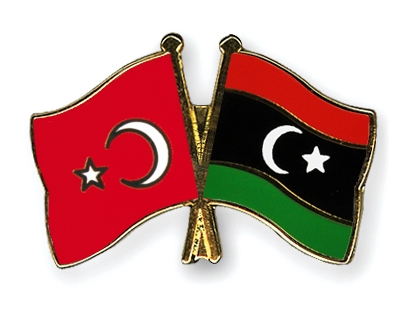By Sami Zaptia.

London, 14 September 2021:
Forty-five members of parliament (the House of Representatives – HoR) submitted a request for a vote-of-no-confidence in the Abd Alhamid Aldabaiba government, HoR Official Spokesperson Abdalla Belheeg confirmed yesterday.
The confirmation came after the HoR ended its Monday session in Tobruk discussing the responses of the Prime Minister and his government during last Wednesday questioning session. There is no session today.
Belheeg said in accordance with Article 194 of Law No. (4) of 2014, the vote-of-no-confidence request will be considered after 8 days.
Analysis
At yesterday’s session most members were critical of the responses to questions by the Prime Minister and his government. But it must be stressed that most of these are members who are generally critical of the government most of the time.
A handful called for a vote-of-no-confidence, but equally as many felt such a move would be destabilising. It is unclear if there will be a majority for such a vote.
UNSMIL urges against vote-of-no-confidence at this time
Meanwhile, in his remarks to the Security Council last Friday, UNSMIL head Jan Kubis said ‘‘While firmly acknowledging the right of the HoR to exercise its oversight function, I have cautioned that attempts to change the interim executive so close to the election date only create more uncertainty about the elections and problems in preparing and securing the election. It is the elections that will give an opportunity to Libyans to validate their government, presidency, and parliament.’’
What happens if the government loses the vote of no-confidence?
It must be made clear, however, that if the government does indeed lose a vote-of-no-confidence, it will continue to carryout its duties as a ‘‘caretaker’’ government, purportedly with reduced powers.
Some of the reasons that members want to withdraw confidence from the government
The purported reasons for the lack of confidence in the government varies from member to member according to their political agenda. The most used excuse is that the government has failed to keep to the LPDF Roadmap which is national reconciliation and ensuring the elections are held on time.
Delayed or aborted elections
Any attempt by HoR members to blame the government for the delay or abandonment of the 24 December 2021 elections would be nonsensical. The delay has been caused by a combination of the 2015 Libyan Political Agreement (LPA), the House of Representatives, and High State Council and the Libyan Political Dialogue Forum (LPDF). The Aldabaiba government can only implement the laws others decree.
National reconciliation used as an excuse
‘‘National reconciliation’’ is used by some members as code for not giving more jobs for their city or region or for failing to give them political concessions. For example, members from the east want the National Oil Corporation to be transferred to the east.
They also want Aldabaiba to appoint a stand-alone Defence Minister and they want Deputy Ministers to have more power.
Members aligned to the Qaddafi regime want more Qaddafi era prisoners to be released. The release of Saadi Qaddafi and others has set a precedent and has increased pressure on Aldabaiba to release more.
But members are being disingenuous. They know that it is not totally in Aldabaiba’s hands whether to release some prisoners or not. Cities such as Misrata and the various militias have a say too.
Going off message/seeking populism
Others accuse him of going off message from the LPDF Roadmap by pursuing other populist policies such as youth grants and for reactivating construction projects. They see this as the job of a longer term government. They accuse him of acting as if he will be in office beyond the election date of 24 December 2021. He probably will.
Aldabaiba: Hero of the youth?
There could be something in that. Aldabaiba knows over 60 percent of Libya’s population is under 30 years old. These are most of tomorrow’s electorate. The youth marriage grant he announced and that was opposed by HoR members for sound legalistic/budgetary reasons has cast him as the hero and the HoR as the villains.
He has also gained popularity for decentralising by giving regional councils and municipalities more powers – including revenue earning powers. Again, this undermines the HoR’s blocking power.
Straight forward jealousy
Aldabaiba has made parliament look bad. He has made them look what they are – slow, ineffective, and unpatriotic status quo dinosaurs. They have been in office since 2014 and their achievement over the period is very poor. They have failed to pass the draft and constitution and failed to hold elections – that would end their power – since 2014.
In contrast, Aldabaiba has been in office since March and has achieved relatively much. Granted, the Faiez Serraj government set the bar very low, making Aldabaiba seem very good. But, Aldabaiba has got the Central Bank of Libya and the Audit Bureau physically in Tripoli and politically behind him.
This has made the HoR seem redundant. Aldabaiba has been able to operate without them. They expected to be able to extract many more concessions out of him – especially by holding back the approval of the budget. Aldabaiba has been able to carry on operating using the one-twelfth formula – to the annoyance of the HoR.
The HoR is jealous. It does not want Aldabaiba to be successful, let alone more successful than they are.










